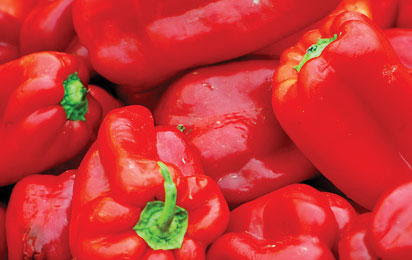
Nigerians living abroad often maintain a deep connection to their roots, frequently longing for the comforting flavors of their homeland. A great way to ease this homesickness is by enjoying the familiar dishes from their childhood.
Nigerian cuisine is renowned for its rich flavors, cultural significance, and distinctive ingredients, making it a favorite among expatriates and food enthusiasts eager to try new tastes. By sharing these cherished dishes, expatriates can reconnect with their heritage while introducing others to the vibrant and diverse world of Nigerian food. This is particularly evident in popular destinations like the United States, the United Kingdom, and Canada, where culinary exploration thrives, allowing Nigerians abroad to celebrate their cultural identity and share the unique flavors of their homeland.
- Ground Egusi (Melon Seeds)
Ground egusi, derived from melon seeds, is a staple in many traditional African dishes, especially known for its ability to create thick and flavorful soups. Packed with protein and featuring a distinct nutty taste, egusi is essential for authentic Nigerian recipes and is increasingly gaining popularity in markets outside Africa.
To enhance its marketability, consider packaging egusi in small, easy-to-store quantities to ensure freshness for consumers. This strategy not only caters to buyer convenience but also encourages the use of this versatile ingredient in a variety of culinary applications.
- Yam Flour (Elubo or Amala)
Yam flour, made from dried and ground yams, plays a crucial role in Nigerian cuisine, particularly for preparing Amala, a beloved dish often paired with various soups.
With its lightweight nature and long shelf life, yam flour is gluten-free, making it an attractive option for health-conscious consumers worldwide. For successful export, ensure that the yam flour is processed and packaged according to international standards. Promoting its gluten-free status will further increase its appeal to both African and non-African customers, expanding its market potential and encouraging wider adoption of this nutritious ingredient.
- Palm Oil
Palm oil is essential in many West African recipes, offering a unique flavor that is hard to replicate. Beyond cooking, it is also commonly used in cosmetics and health products. Ethically sourced and sustainable Nigerian palm oil can find a receptive market in Western countries.
It is vital to ensure that the palm oil is certified as sustainably sourced, as this is increasingly important to consumers in Western markets who are concerned about environmental impacts. Additionally, compliance with FDA and EU standards is crucial for successful entry into these markets.
- Nigerian Spices and Seasoning Mixes
Nigerian spices and seasoning blends, such as suya spice and curry powder, are integral to creating the rich flavors characteristic of Nigerian dishes. These spice mixes not only enhance the taste of food but also offer convenience for consumers looking to recreate authentic Nigerian meals at home.
To attract a broader audience, consider packaging these spices in appealing, resealable pouches that maintain freshness. Highlighting their natural ingredients and lack of artificial additives can also attract health-conscious buyers. Marketing these seasoning mixes as part of a culinary exploration experience can entice non-African consumers to try their hand at Nigerian cooking, expanding your market reach even further.


